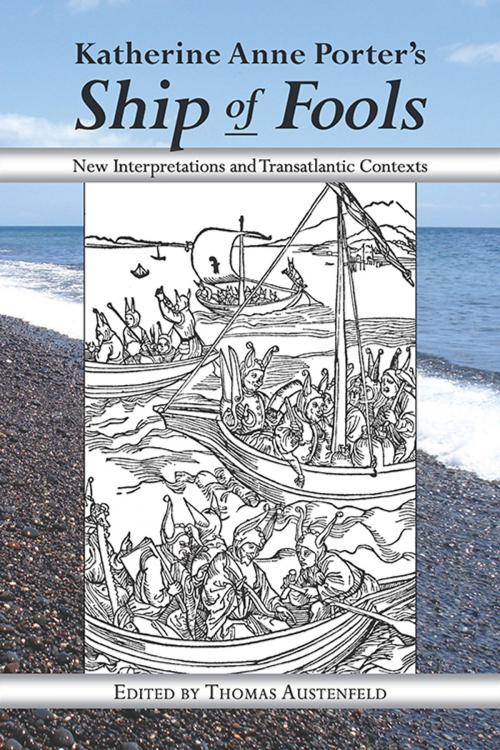Katherine Anne Porter's Ship of Fools
New Interpretations and Transatlantic Contexts
Fiction & Literature, Literary Theory & Criticism, Women Authors, American| Author: | ISBN: | 9781574416060 | |
| Publisher: | University of North Texas Press | Publication: | April 15, 2015 |
| Imprint: | Language: | English |
| Author: | |
| ISBN: | 9781574416060 |
| Publisher: | University of North Texas Press |
| Publication: | April 15, 2015 |
| Imprint: | |
| Language: | English |
Containing pieces by distinguished scholars including Darlene Harbour Unrue and Robert Brinkmeyer, this book is the first full investigation of the links between Porter's only novel and European intellectual history. Beginning with Sebastian Brant, author of the late medieval Narrenschiff, whom she acknowledges in her Preface to Ship of Fools, Porter's image of Europe emerges as more complex, more knowledgeable, and more politically nuanced than previous critics of her novel have acknowledged. Ship of Fools is in conversation with Europe's humanistic tradition as well as with the political moments of 1931 and 1962; i.e., the years that elapsed from the novel's conception to its completion. The novel and the 1965 film based upon it intervene into the history of film, the assessment of Weimar Germany, and Porter's clear-eyed judgment of her own times through the lens of her art.
Containing pieces by distinguished scholars including Darlene Harbour Unrue and Robert Brinkmeyer, this book is the first full investigation of the links between Porter's only novel and European intellectual history. Beginning with Sebastian Brant, author of the late medieval Narrenschiff, whom she acknowledges in her Preface to Ship of Fools, Porter's image of Europe emerges as more complex, more knowledgeable, and more politically nuanced than previous critics of her novel have acknowledged. Ship of Fools is in conversation with Europe's humanistic tradition as well as with the political moments of 1931 and 1962; i.e., the years that elapsed from the novel's conception to its completion. The novel and the 1965 film based upon it intervene into the history of film, the assessment of Weimar Germany, and Porter's clear-eyed judgment of her own times through the lens of her art.















